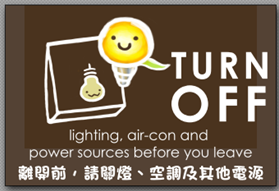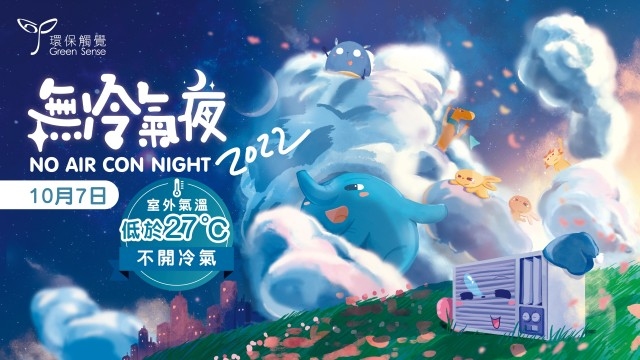Message from the Co-Chairmen of the Working Group on Energy Conservation and Sustainable Campus
Sustainability is at the heart of the wide range of activities that the Hang Seng University of Hong Kong (HSUHK) and its community undertaking. We have been putting emphasis on providing a sustainable built campus environment for our research, teaching and learning activities. The principle of sustainability is manifested by HSUHK being the first higher education institution in Hong Kong awarded the BEAM Plus (version 1.1) ‘Platinum’ rating for five of our newer buildings, i.e. S H Ho Academic Building, Lee Shau Kee Complex, Lee Quo Wei Academic Building, the BEAM Plus (version 1.2) ‘Platinum’ Rating for the HSUHK Jockey Club Residential Colleges and the BEAM Plus (version 2.0) Provisional ‘Platinum’ rating for Creative Humanities Hub. This and other recognitions and achievements affirm the University’s leading role in promoting green initiatives in the region.
To ride on the success of the flagship event “Symposium on Sustainability and Bamboo” in July 2015, the Working Group on Energy Conservation and Sustainability has been formed with student representation under the Space Allocation and Facilities Management Committee (currently Campus Facilities Management Committee (CFMC)) to identify and facilitate implementation of practical measures on energy conservation and sustainability by engaging staff and students. In January 2024, the Working Group undergoes a name change and is now known as the Working Group on Energy Conservation and Sustainable Campus under the Sustainability and Social Responsibility Committee (SUSRC).
We believe that our efforts on energy conservation and sustainability should be from “ground-up”, involving each and every one of YOU, as part of the HSUHK Community. Tell us how we may collectively, continuously and creatively steer towards a more sustainable campus life and culture. You can also join us in our future green initiatives and share with us your ideas. A small step from you, a big step for HSUHK – Let’s “Think Green‧Act Green at HSUHK”!
Dr. Victor C.M. Chan
Assistant Professor, Department of Social Sciences
Mr Landy Hung
Director of Campus Development and Management
Co-Chairmen, Working Group on Energy Conservation and Sustainable Campus
About the Working Group on Energy Conservation and Sustainable Campus
The Working Group on Energy Conservation and Sustainable Campus is chaired by Dr. Victor Chan, Assistant Professor, Department of Social Sciences and Mr Landy Hung, Director of Campus Development and Management as well as comprises staff members from the other academic department, Campus Development and Management Office (CDMO), Information Technology Services Centre (ITSC), Student Affairs Office (SAO), Vice-President (Organisational Development)’s Office, with student representation. The terms of reference are as follows:
-
-
- To study and review the current level of energy consumption and measures on sustainability;
- To identify practical University-wide initiatives and communication channels to staff, students and the wider HSUHK community relating to energy conservation and sustainability thereby to raise awareness of sustainability and to achieve cost saving; and
- To make recommendations and report to, where appropriate, the Sustainability and Social Responsibility Committee (SUSRC) on the above-mentioned matters.
-
HSUHK Energy Conservation and Sustainable Campus
HSUHK is keen to step up sustainable efforts when carrying out a wide range of our research, teaching and learning activities by our students and staff. While the list is never exhaustive, as a start, we have been working on:
-
-
- Re-adjusting the optimal temperature of chilled water to better fit seasonal changes
- Turning off internal lighting in most public areas 30 minutes after the last booking on non-class days
- Turning off most escalators and passenger lifts in most buildings 30 minutes after the last booking on non-class days
- Turning off air-conditioning of classrooms 30 minutes before the last booking to better utilise the remaining indoor coolness on non-class days
- Turning off decorative lighting as far as possible to minimise energy consumption and light pollution
- Gradually replacing old and broken lighting with those having higher energy efficiency
- Using LEDs for some outdoor lighting
- Conducting regular cleaning and inspection of the air-conditioning to maximise efficiency
- Encouraging purchase of electrical appliances with higher energy efficiency
- Advocating rooftop farming on one of our BEAM Plus buildings
- Adopting hibernation mode of personal computers (PCs) for 2-hour inactivity
- Shutting down of public PCs after 1-hour inactivity
- Promulgating printing of emails only if necessary
- Placing recycling bins in offices and student residential halls e.g. computer labs, printing stations (see campus locations of recycling bins here)
- Using compost made from garden waste into the campus
-

Tips for a Green Lifestyle
There is again not an exhaustive list to lead a sustainable and green lifestyle for our lovely but sickening planet. “Less is More” is at the core of the many innovative efforts – let’s be creative and act now!

- Shop only if you really need it – sometimes think about the limited storage at home before shop
- Go for some classic and durable fashion styles and you won’t need to shop every season
- Learn to sew and mend a button
- Chop up torn clothes into pieces after cleaning and turn them into wiping cloths
- Donate old clothes instead of throwing them away
- Laundry in a full load of washing machine to save energy and water
- Hand wash instead of dry clean; air dry instead of tumble dry
- Share baby and kid clothings among friends and families – it also saves money

- No shark fins and endangered animals!
- Eat greens and organic, if you can – the production of vegetables require much less water than that for meat
- Know which sustainable seafood to eat – have a look at WWF’s seafood guide
- Put on a lid when you cook to save heat
- Know your stomach, order food portion that fits your appetite
- Voice out “less rice” when order
- Bring your own reusable containers when order takeaways
- Bring your own bags (BYOB!) to lift food back home
- Do the dishes after meals without keeping the water tap on

- Pay attention to energy labels when buying electrical appliances
- Cut back air-conditioning, fans normally allow better ventilation
- Unplug and turn OFF power sources as and when you don’t need them – stand-by mode consumes energy too!
- Use rechargeable batteries
- Install a low-flow showerhead
- Mend dripping and leaking faucet
- Stop using plastic bottles and one-off foam containers, reduce wastes – Hong Kong’s landfills are about to be full!

- Climb stairs instead of taking lifts – keep fit and save energy
- For walkable distance, do the walk please
- Use public transport or even ride a bike whenever possible
- If you have to drive to work, worthwhile to find out colleagues who live in your neighbourhood to share ride

- Opt for electronic billing, utilise online payment services, and electronic payment channels
- Save paper handkerchiefs and other paper products, use towels or non-paper products instead
- Reduce the use of toilet paper and kitchen paper towels
- Avoid one-time purchases of non-reusable paper products such as paper cups and paper-packaged drinks
- Make the most of everything – make full use of all the blank spaces on the paper to reduce the amount of paper used
- Both sides of all paper shall be used, even the blank back of old paper can be used to make your own notebook or scratch paper
- Reuse, reduce or even not use gift wrapping paper, paper bags and stickers
- Replace paper greeting cards by phone calls, emails, electronic greeting cards or mobile text messages
- Make good use of the intranet and email to publish announcements.
- Use electronic diaries, calendars and phone books instead of printed ones whenever possible.

Events and Announcements
HSUHK Quarterly Hour
HSUHK Quarterly Hour
HSUHK Quarterly Hour and No Air Con Night
HSUHK Quarterly Hour
Useful Links
HKSAR Government
Hong Kong Higher Education Institutions
- Sustainability@CityU
- HKBU Sustainability
- Hong Kong Sustainable Campus Consortium
- Green Office Programme, The Chinese University of Hong Kong
- Sustainability@EdUHK
- Campus Sustainability Committee, The Hong Kong Polytechnic University
- The Hong Kong University of Science and Technology
- Sustainability Office, The University of Hong Kong
Others
(Some websites have Chinese version only.)

Tel: (852) 3963 5000
Fax: (852) 3963 5332
Hang Shin Link, Siu Lek Yuen, Shatin, N.T.,
Hong Kong
green@hsu.edu.hk
© 2022 The Hang Seng University of Hong Kong
Privacy Policy





